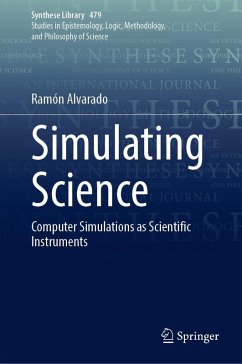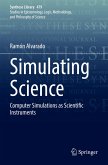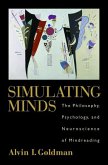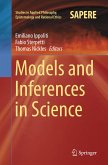This book provides a philosophical framework to understand computer simulations as scientific instruments. This is in sharp contrast to existing philosophical approaches on the subject, which have historically understood computer simulations as either formal abstractions or as broadly construed empirical practices. In order to make its case, the volume contains a thorough examination of conventional philosophical approaches as well as their respective limitations. Yet, also, unlike other accounts of computer simulations from the perspective of the philosophy of science, this book incorporates insights from the philosophy of technology and the history of science. Hence, the book offers philosophers of science, technologists and other researchers interested in the topic, a thorough overview of the philosophical issues regarding the design, development and deployment of computer simulations in science and science-based policy making.
Bitte wählen Sie Ihr Anliegen aus.
Rechnungen
Retourenschein anfordern
Bestellstatus
Storno








